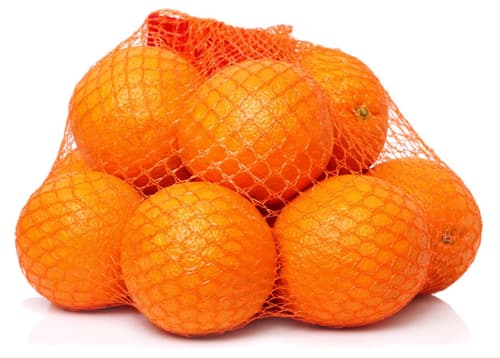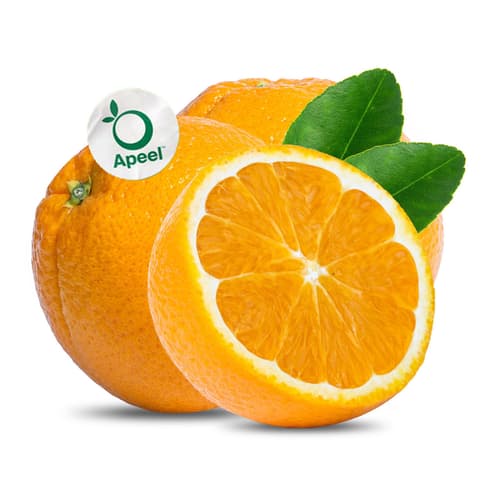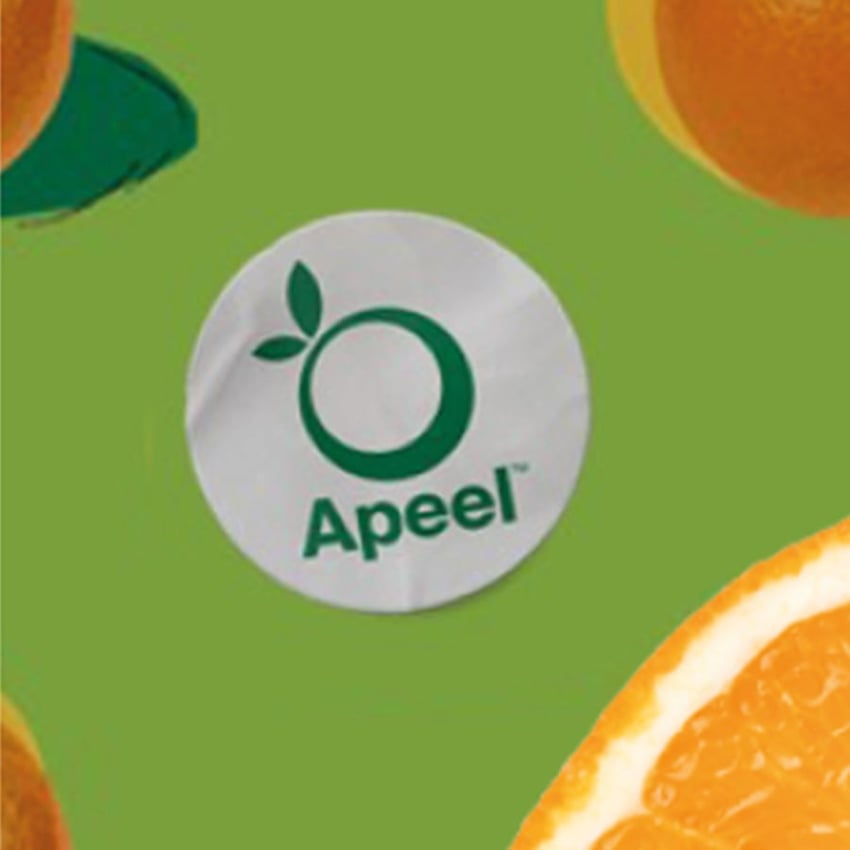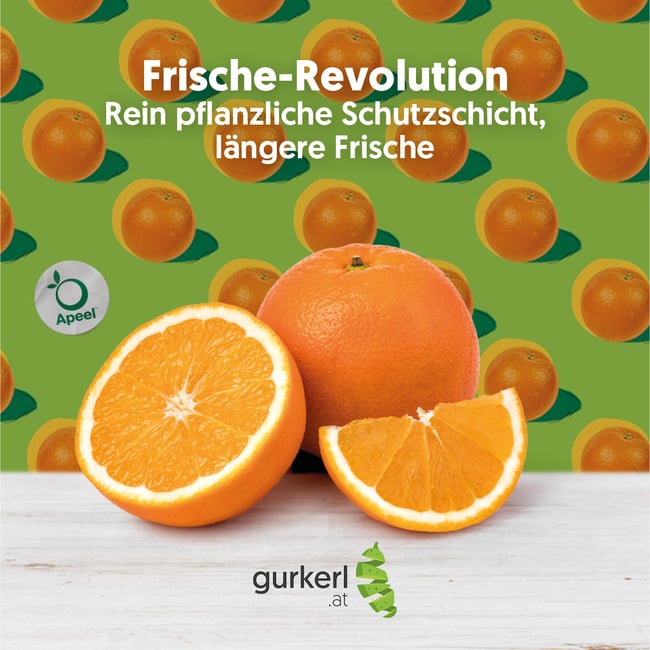

Apeel - Juice oranges in a net
2 kgDelivery to your door
We source locally for the freshest groceries you can trust.
- Description
- Composition
- Similar products
- More from this brand
- Recipes

Frische-Revolution
Perfect oranges to make juice, as they have an intense and balanced flavour, with plenty of juice and no seeds.... make this natural vitamin thirst quencher really delicious. Harvested at their optimal picking point.
These oranges were grown using sustainable agricultural practices that drastically reduce water and energy consumption, as well as the number of phytosanitary treatments (sprays).
With Naturegreen/Iberhanse, we have been able to gain a strong partner in sustainability, because with their organic-integrative agriculture they are pioneers in this segment.
What connects sustainable agriculture with Apeel's innovative technology?
Apeel is on a mission to create a more sustainable global food system by harnessing the power of nature to enable longer-lasting products that combat food waste from farm to kitchen.
.Products with the Apeel protective coating have a shelf life that is two times longer thanks to the plant-based protection that comes from the materials in the peels, seeds and pulp of all fruits and vegetables. Apeel's protective extra shell slows water loss and oxidation that lead to food spoilage and is the only proven end-to-end solution to preserve freshness.

In 2010, Luis Bolaños, founder of Iberhanse, looked with great concern at how the increase in global consumption was leading to an uncontrolled expansion of agriculture, with farming becoming the main predator of ecosystems and nature.In a confined space, this meant that the animals that could be seen in the past, such as partridges, rabbits or birds of prey, had disappeared from the farms Luis visited. In addition, soil erosion forced the farms to carry out costly measures on the ground every year.
In this way, and although this situation was not a priority or concern for society in general and for mass consumption at the time, Luis realised that the current production model was outdated and close to its end. At this point, he decided to start a new production model on his farms that would alleviate this situation.
.In view of this worrying panorama, the company intuitively took the decision in this first phase to integrate environmentally friendly techniques into agricultural production that would have the least possible impact on the environment and help to restore and protect habitats. And all this despite the still low level of interest from major retailers and consumers.
To avoid erosion, seeds were sown directly on farm roads, and reserve areas free of agricultural or human activity were created for the recovery of flora and fauna.

The results were surprising and, most importantly, without affecting production. Which led Iberhanse to expand these measures.
This was the birth of Bio-Inclusive Agriculture; bio-integrative agriculture.
Thanks to sustainable farming practices, the farms have reduced water consumption by 25%, energy consumption by 20% and the number of pesticides applied by 70%, minimising their toxic load.
More than 75 species of animals have been reintroduced, 3 million cubic metres of water have been converted into natural ecosystems, 30,000 metres of borders and banks have been restored and 14,000 metres of green corridors have been created.
Biodiversity and biodiversity are the key here to create an optimal interplay between successful, sustainable agriculture and a healthy natural environment.

